What salt, sugar, red meat and alcohol really do to your body
We know they’re not good for us, but what’s the latest science on those foods that can wreak havoc on our health?

We all know certain foods are considered unhealthy – but do we really know what effect they are having on our bodies and brain?
From sizzling bacon to buttery croissants, the foods that are most tempting to our tastebuds are often the worst offenders when it comes to our health.
“Beneath the surface some popular foods are biochemical troublemakers,” says Alex Ruani, researcher in nutrition science at University College London and chief science educator at the Health Sciences Academy.
“They can trigger inflammatory responses and sugar spikes or have long-term impacts on cardiovascular and cognitive health, quietly undermining our physiology as we continue to enjoy them.”
So what are the foods that most harm our health and how are they wreaking havoc?
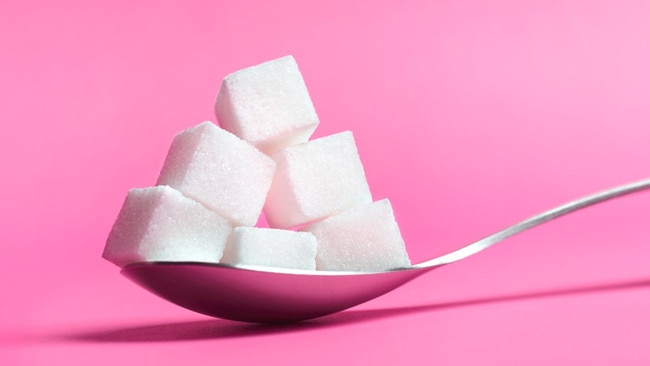
Sugar
Sugar found naturally in milk, whole fruit and vegetables is fine for us to include in our diet but any sugars added to food and drinks, known as “free sugars”, are the kind that we really should be avoiding.
“Free sugars can appear on labels as honey and syrups, fruit juice, molasses, fructose and glucose,” says the nutritionist Rhiannon Lambert, author of The Science of Nutrition.
“The World Health Organisation recommends we consume no more than 5 per cent of total calories from free sugars and the NHS states that adults should have no more than 30g of free sugars a day [about 7 sugar cubes] and children aged 7 to 10 no more than 24g [6 sugar cubes] daily.”
It’s easy to rack up a high sugar intake without realising when you consider that the British Nutrition Foundation lists a sweetened fruit yoghurt as containing 11.3g of free sugars per individual pot.
A slice of lemon drizzle cake 21.3g and a single digestive biscuit 2.7g of free sugars. Over time a sugary diet is correlated with obesity, metabolic disorders, diabetes, cardiovascular disease, cancer, depression and cognitive impairment, says the UK campaign group Action on Sugar, a group of specialists based at Queen Mary University of London who are concerned about the effect of sugar on health.
Sugary foods have been shown to affect the dopamine release activating our reward pathways. A 2024 study in BMC Psychiatry showed sugar consumption may have an impact on mood with the risk of depression in adults increasing with higher sugar intakes.
An estimated one in five British children have dental caries due to an excess of free sugars and last week a study in the journal Science looked at UK Biobank data to show that children who experienced sugar restrictions during their first 1000 days after conception and during early childhood had up to a 35 per cent lower risk of developing type 2 diabetes and were one fifth less likely to develop hypertension as adults.
Continuing sugar restriction further into childhood increased the benefits, said the researchers from McGill University in Montreal and the University of California, Berkeley.
A review of 73 papers in the BMJ last year found a high sugar intake to be “more harmful than beneficial for health, especially in cardiometabolic disease”, with too much added sugar associated with high blood pressure and inflammation, risk factors for heart disease.
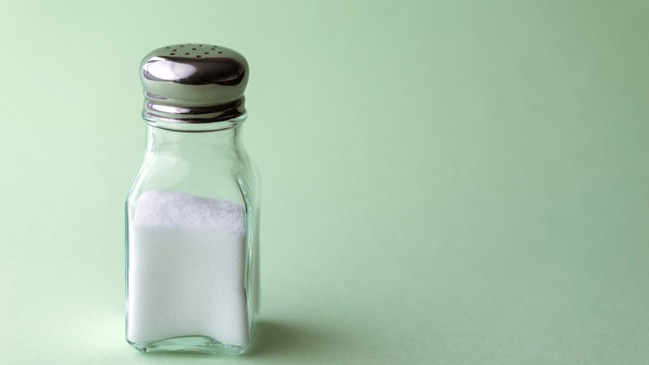
Salt
The average British adult consumes about 8.1g of salt a day (although many people eat more than this), down from the 9.5g consumed two decades ago, but still too high.
Health chiefs set the upper limit as 6g (about a teaspoon) a day, although Graham MacGregor, professor of cardiovascular medicine at the Wolfson Institute of Preventive Medicine (Barts and the London) and chair of the campaign group Action on Salt, based at Queen Mary University of London, says we should aim even lower.
Some salt is necessary for the body to function normally, but too much is associated with raised blood pressure, which is linked to heart disease and strokes.
The charity Blood Pressure UK says high salt intake remains “the single biggest cause of high blood pressure in the UK” and can also interfere with blood pressure drugs, making them less effective.
“Consuming too much salt results in too much fluid being retained in the bloodstream [instead of being excreted], which causes extra pressure on blood vessel walls so that blood pressure rises,” MacGregor says.
That’s not all. In a review paper published in the Journal of the American College of Cardiology, MacGregor reported clear evidence that an excessively salty diet is associated with a higher risk for heart disease, stomach cancer, bloating and kidney disease.
It can also result in a less effective immune response and in the development of renal stones, which can raise the risk of osteoporosis.
“And a few studies in both animals and humans have suggested a link between high salt intake and cognitive impairment,” MacGregor says.

Coffee
We’re slowly learning that coffee contains hundreds of plant components and antioxidants that are beneficial for our health and gut, and in moderation it can be consumed without health risks for most people.
However, more than four cups a day can present problems, with a recent study in the International Journal of Stroke showing that more than four cups of coffee a day increased the chance of stroke by 37 per cent.
According to the researchers, who included Professor Andrew Smyth from the University of Galway in Ireland, caffeine in coffee increases blood pressure, a leading risk factor for stroke, and it was noted that although coffee contains more protective antioxidants than tea, roasting coffee may degrade these beneficial nutrients.
If you already have hypertension, the risks are even higher: a study of more than 18,600 men and women showed that consuming two or more cups of coffee a day was associated with twice the risk of death from cardiovascular disease among people with severe hypertension compared with non-coffee drinkers.
The Royal Osteoporosis Society says drinking a lot of coffee can result in increases in the amount of calcium lost in urine, so if your calcium intakes are low you should aim to have no more than four cups of coffee a day.
While tea does contain some caffeine, it isn’t found to have the same effect because of the amount of flavonoid substances tea contains that seem to counter the negative effects. “Tannins in coffee can also bind to iron and block its absorption by the body,” Ruani says. “It’s best to avoid consuming iron-rich foods with coffee, keeping them at least an hour or two apart so they don’t mix in your stomach.”

Alcohol
Alcohol is bad for you. It’s as simple as that. Even if you stick below the 14 weekly units recommended as an upper limit by UK health chiefs you could be drinking too much.
When British researchers looked at the alcohol intakes of 400,000 participants in the UK Biobank database they discovered that even low intakes were associated with an increased risk of cardiovascular issues, including hypertension and coronary artery disease.
Similarly, a team of scientists who examined the diet habits of nearly five million people for a study in Jama Network Open found that low intakes of any type of alcohol did nothing to protect against early death from any cause.
“When alcohol is metabolised, it also produces acetaldehyde, a toxic compound,” Ruani says. “Acetaldehyde is not only damaging to cells but is classified as a group 1 carcinogen by the International Agency for Research on Cancer, plus it contributes to oxidative stress, inflammation and cellular damage, which can further aggravate cardiovascular and liver conditions.”
Don’t think that polyphenol compounds such as resveratrol, which have antioxidant and anti-inflammatory properties and are found in red wine, transform it into a health tonic either.
You would need to drink up to 500 litres of red wine a day to get enough resveratrol to boost health, according to a study in Advances in Nutrition – you’d be much better off eating red grapes, blueberries, dark chocolate and tomatoes, all of which contain the plant compound.

Red meat
There are several reasons that government guidelines recommend we eat no more than 70g a day (or 490g a week) of red meat, the equivalent of one third of an 8oz steak or five tablespoons of beef mince. Haem, a red pigment found naturally in red meat, has been shown to damage bowel cells and high intakes of it are listed by the IARC as a “probable” cause of bowel cancer.
How you cook it can make matters worse, says Cancer Research UK, since the extreme heat of barbecuing, grilling or frying generates more damaging chemicals that are also linked to bowel cancer: heterocyclic amines, for example, are formed when animal proteins are exposed to high heat while polycyclic aromatic hydrocarbons are formed when fat from meat drips onto a heated surface and burns, “coating” the meat with the smoke.
In a recent Lancet Diabetes and Endocrinology study of two million people researchers from the University of Cambridge suggested that eating 100g of unprocessed red meat a day – equivalent to a small steak – was associated with a 10 per cent higher risk of type 2 diabetes.
Red meat also contains saturated animal fats.
In a review of 13 studies involving more than 1.4 million people published in Critical Reviews in Food Science and Nutrition, scientists from the University of Oxford’s Nuffield Department of Population Health found that an intake of 50g or higher of unprocessed red meat a day increased the risk of heart disease by 9 per cent over 30 years.
“Diets high in red meat are associated with approximately 900,000 deaths worldwide according to a study from the Huazhong University of Science and Technology,” Ruani says. “And the 2019 EAT-Lancet Commission advised reducing global red meat consumption by more than 50 per cent as a critical strategy to benefit humans and the planet – in short we need to eat less meat.”
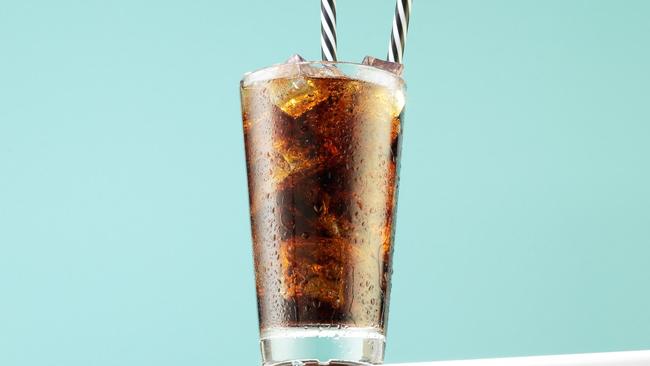
Fizzy drinks
Fizzy drinks are often laced with added sugar – according to the NHS, a single can of cola can contain nine cubes of sugar, more than the recommended daily limit for adults.
Drink them too often and the sugar in carbonated drinks interact with bacteria in your mouth to form acid that attacks teeth enamel and can lead to decay.
There’s also evidence that having too many carbonated drinks contributes to an increased risk of obesity, diabetes and raised blood pressure. These, in turn, are risk factors for a stroke – a recent study involving 26,950 individuals from 32 countries that was conducted at McMaster University in Canada and the University of Galway showed that sugar-containing fizzy drinks were associated with a 22 per cent increased likelihood of a first stroke.
Artificially sweetened diet drinks fared no better, with sweeteners negatively affecting vascular health to present a similar risk to the sugar varieties in the McMaster and Galway study. “As a doctor and as someone who has researched the risk of stroke, I would encourage people to avoid or minimise their consumption of fizzy and fruit drinks, including non-sugar varieties, and to consider switching to water instead,” said Andrew Smyth, professor of clinical epidemiology at University of Galway and consultant physician at Galway University Hospitals, and lead author on the paper published in the Journal of Stroke.
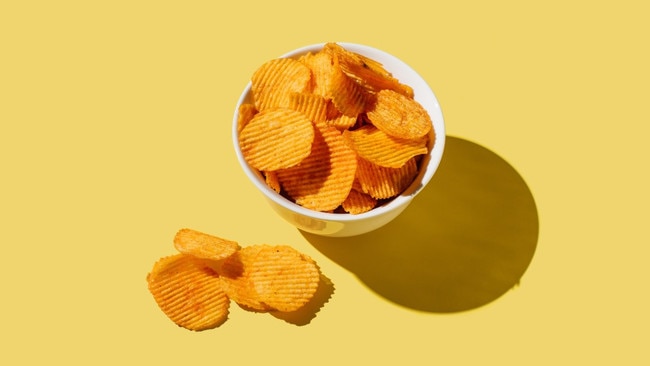
Crisps
In 2006 the British Heart Foundation ran a campaign that warned “What goes into crisps goes into you”, detailing how eating one packet of crisps a day is the equivalent of pouring almost five litres of cooking oil down your throat every year, presenting a “threat to long-term health”.
That is still true today, with many crisps being deep fried in the same way as they were then. If that’s not enough to put you off, crisps are also salty and the amount of salt that we eat increases our blood pressure, a major cause of strokes and heart disease.
An average 25g bag of ready salted potato crisps contains 0.35g of salt or 1.4g per 100g, although some healthier-sounding options contain even more.
According to the campaign group Action on Salt, brands of lentil crisps can contain 3.4g per 100g and hummus chips 3.6g per 100g, meaning they are saltier than seawater.
Don’t be misled by sea salt-flavoured crisps that sound healthier than those made with standard salt – Action on Salt has shown them to contain the same levels of sodium and to be equally damaging to health.
“If all of this isn’t off-putting enough, crisps are also loaded with acrylamides, the toxic carcinogens formed when food is fried or baked,” Ruani says.

Processed meat
If you haven’t reduced your intake of bacon, ham, salami and other processed meats, it’s probably time you did. Processed meat is categorised as a group 1 carcinogen – the same group as smoking and alcohol – by the IARC.
A study by Cancer Research UK scientists involving 474,996 UK adults found that those eating 79g red or processed meat a day, the equivalent of three slices of ham, had a 32 per cent increased risk of bowel cancer compared with people eating less than 11g daily.
Chemicals such as nitrates and nitrites, which are added during processing to keep meats fresher for longer, have been shown to damage cells in the bowel.
In a Lancet diabetes and endocrinology study at the University of Cambridge researchers warned that eating 50g of processed meat a day – the equivalent of two slices of ham – presents a 15 per cent higher risk of developing type 2 diabetes in the next 10 years. It follows a study published last year in Mayo Clinic Proceedings that found too much salt, present in high amounts in processed meats such as ham, salami and bacon, also raises the risk of type 2 diabetes.
Cancer Research UK says: “The evidence is clear that eating less processed meat can help reduce the risk of bowel cancer, the fourth most common cancer in the UK.” Better still, cut it out completely.

Pastries
Grabbing a croissant for breakfast or a Danish pastry or cinnamon bun with your coffee is a habit that is worth quitting.
A recent study from the University of Oxford, presented at the European Society of Cardiology Congress in September, found that eating a buttery pastry every day could “silently” elevate the risk of severe heart issues within just four weeks.
“Pastries are possibly one of the worst offenders in our diets,” Ruani says. “Beneath their flaky layers and sweet fillings lurk a variety of health risks.” She says that “pastries often contain damaging fats, including trans fats, and harmful by-products such as peroxides, which are a result of high-temperature baking or frying.”
These contribute to inflammation and oxidative stress in the body, disrupting cell membranes and, according to a study published in the Journal of the American College of Nutrition, increase cardiovascular disease risk factors, such as elevated LDL “bad” cholesterol and hypertension.
Pastries are typically high in other harmful compounds called advanced glycation end products (AGEs) that form when sugar binds to proteins or fats during baking.
“These AGEs can promote oxidative stress and inflammation in the body, contributing to cellular ageing as well as chronic health conditions such as diabetes, cardiovascular disease and kidney disease,” Ruani says.
“Pastries contain 10 to 50 times more AGEs than less processed foods like fresh fruits, vegetables and whole grains so it makes sense we should eat them very sparingly, if at all.”

Processed spreads
On top of the 147 million kilograms of butter Britons consume each year, also consumed is 120 million kilograms of spreads, including many of the popular plant-based options such as those made from sunflower, olive and other plant-based oils.
In the UK, these spreads are no longer manufactured using the partial hydrogenation technique that solidified plant oils into spreadable pastes but also created trans fats with unhealthy side-effects, especially for the heart. Instead, a method called interesterification is often used to transform vegetable oils into spreads.
In a review paper on interesterified (IE) fats, Ruani’s colleagues at KCL said that the health effects of IE fats are not well understood, but some researchers have suggested they may have adverse effects on lipid metabolism and cardiovascular disease risk.
“Annoyingly, most plant spread labels don’t specify whether spreads contain IE fats as there are no regulations to do so in the UK,” Ruani says. “However, the KCL team found most available are made from IE-based fats.”
Plant spreads, particularly those made with rapeseed or sunflower oil, can also contain high amounts of omega 6 fatty acids.
“When over-consumed these omega-6 fatty acids can exacerbate inflammation and oxidative damage, potentially harming brain and cardiometabolic health over time,” Ruani says.
Any spread containing additives such as preservatives, colouring, flavouring and emulsifiers is classified as an ultra-processed food (UPF), the kind we are supposed to be eating less of. “Some contain monoglycerides and diglycerides of fatty acids, types of emulsifiers which were linked to cardiovascular disease in a BMJ study last year,” Ruani says.
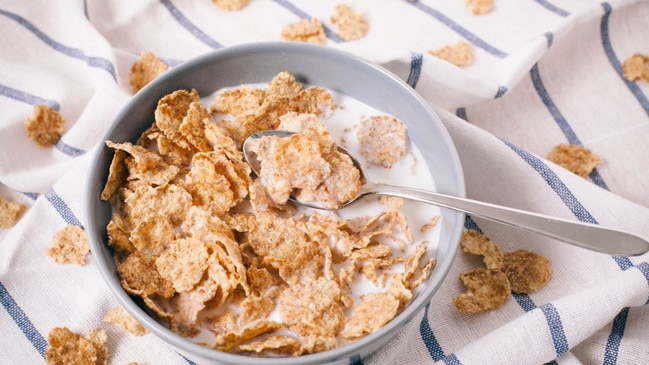
Breakfast cereals
We know that many breakfast cereals are not a healthy choice given their high sugar content, but they remain a morning staple, with 85 per cent of Britons eating them. Half of those cereals are the ultra-processed varieties that often contain additives and preservatives to improve taste, shelf life and texture.
“Most ready-to-eat breakfast cereals are considered UPFs due to the high level of industrial processing they undergo,” Ruani says. “Studies on UPFs, including many ready-to-eat breakfast cereals, show they are linked to higher risks of obesity, metabolic syndrome and cardiovascular diseases.”
Many cereals marketed as “healthy” or “nutritious” may still contain relatively high levels of sugar and additives, and those fortified with vitamins and minerals can still also be high in sugar and low in natural fibre, potentially exacerbating issues such as constipation or bloating.
“Highly refined and sweetened cereals lack the fibre needed to support a healthy gut microbiome, potentially leading to digestive symptoms and reduced metabolic health benefits associated with whole grains,” Ruani says.
“Most breakfast cereals, even the less processed types like muesli or granola, often contain heat-induced contaminants like acrylamide and hydroxymethylfurfural, which are linked to DNA damage and other harmful effects on health when consumed in high amounts.”
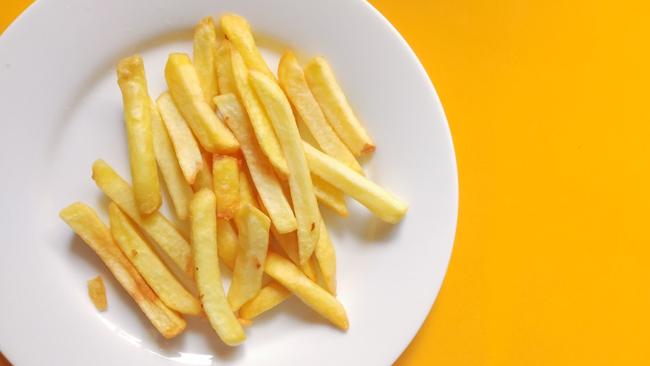
Chips
We know they are not a health food, but that doesn’t diminish our love of chips. About 167 million portions of fish and chips are consumed each year, and figures from Kantar, a market researcher, show that 7.4 million people eat frozen chips once a week.
This is not good news for the waistline. Potatoes fried in oil lose some of their water content and absorb fat, which is why a small baked potato contains only 128 calories and 0.18g of fat while the same weight of chips provides about 431 calories and 20g of fat that will settle as body fat if consumed in excess of your energy needs.
Frying starchy foods such as potatoes also produces relatively high amounts of acrylamide, a toxic chemical formed during exposure to high-temperature cooking, which some studies have suggested may increase the risk of certain types of cancer.
“The European Commission classed acrylamide in category 1B as a carcinogen and mutagen, leading to genetic mutations and DNA damage, and in category 2 as a reproductive toxicant associated with a risk of sub-fertility,” Ruani says.
One study of 4440 people aged between 45 and 79, published in the American Journal of Clinical Nutrition, found that over an eight-year period, people who ate chips and other types of fried potato such as hash browns twice a week doubled their risk of dying prematurely. Frozen oven chips contain less fat but can be high in sodium, used as a preservative and flavour enhancer, and other additives that are not beneficial to health.
The Times







To join the conversation, please log in. Don't have an account? Register
Join the conversation, you are commenting as Logout